When life gives you lemons: How a lemon farm in Benguet increased profits through agritourism
By James Tababa
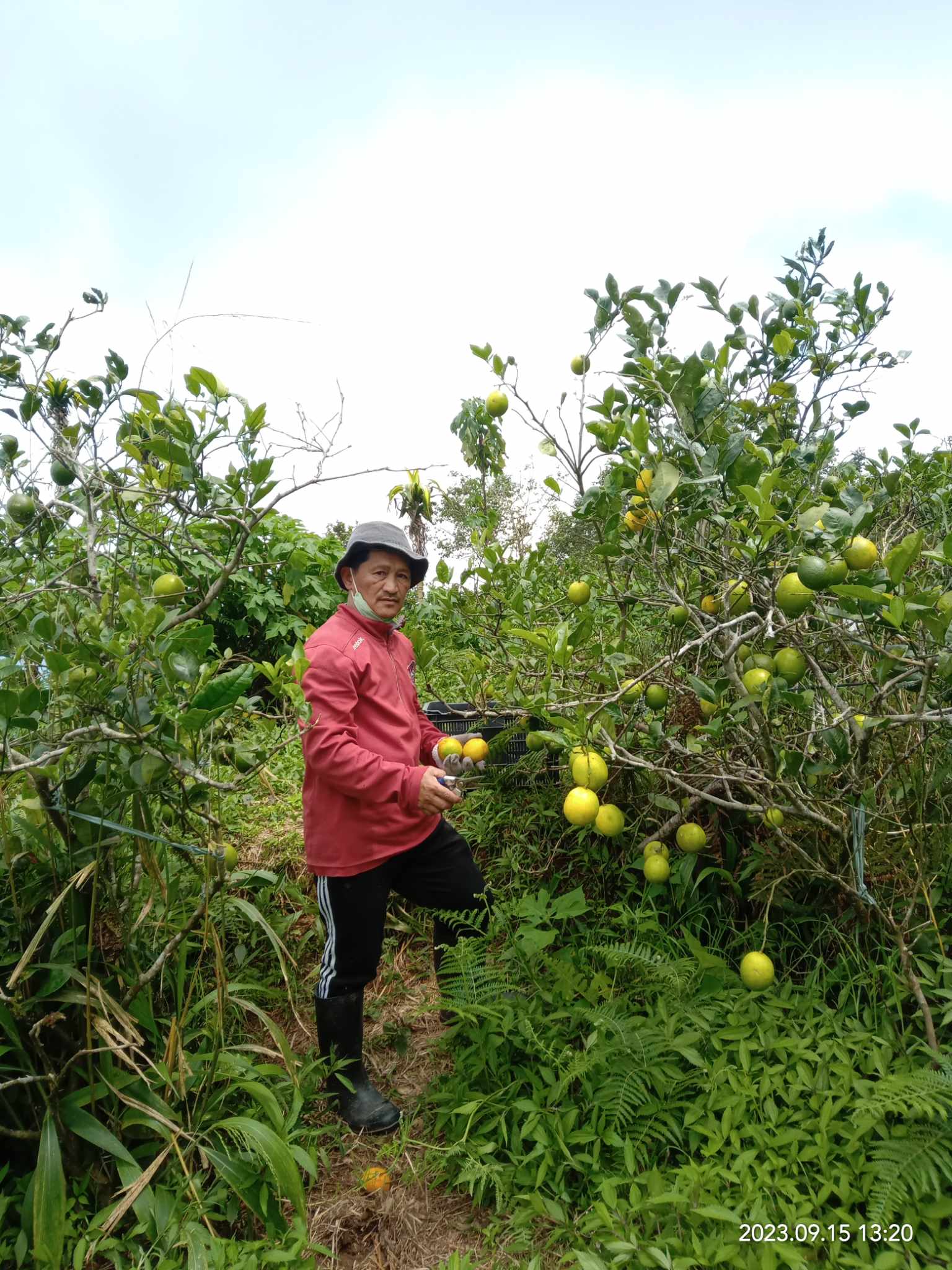
At 56 years old, Rolando Amando, one of the owners of Amando’s Lemon Picking Farm in Tublay, Benguet, has grown a humble lemon plantation into a thriving agritourism hotspot. Rolando and his family's initial intentions were simple – to cultivate lemon trees. It so happened that their lemon tree propagation project coincided with their efforts to combat erosion on a section of their land.
The land originally belonged to Rolando's parents, Mathew and Lolita Amando, and it is currently overseen by him and his eight siblings. The decision to cultivate lemons was influenced by the lemon orchards cultivated by their neighbor. Furthermore, they saw the potential for generating income from this endeavor.
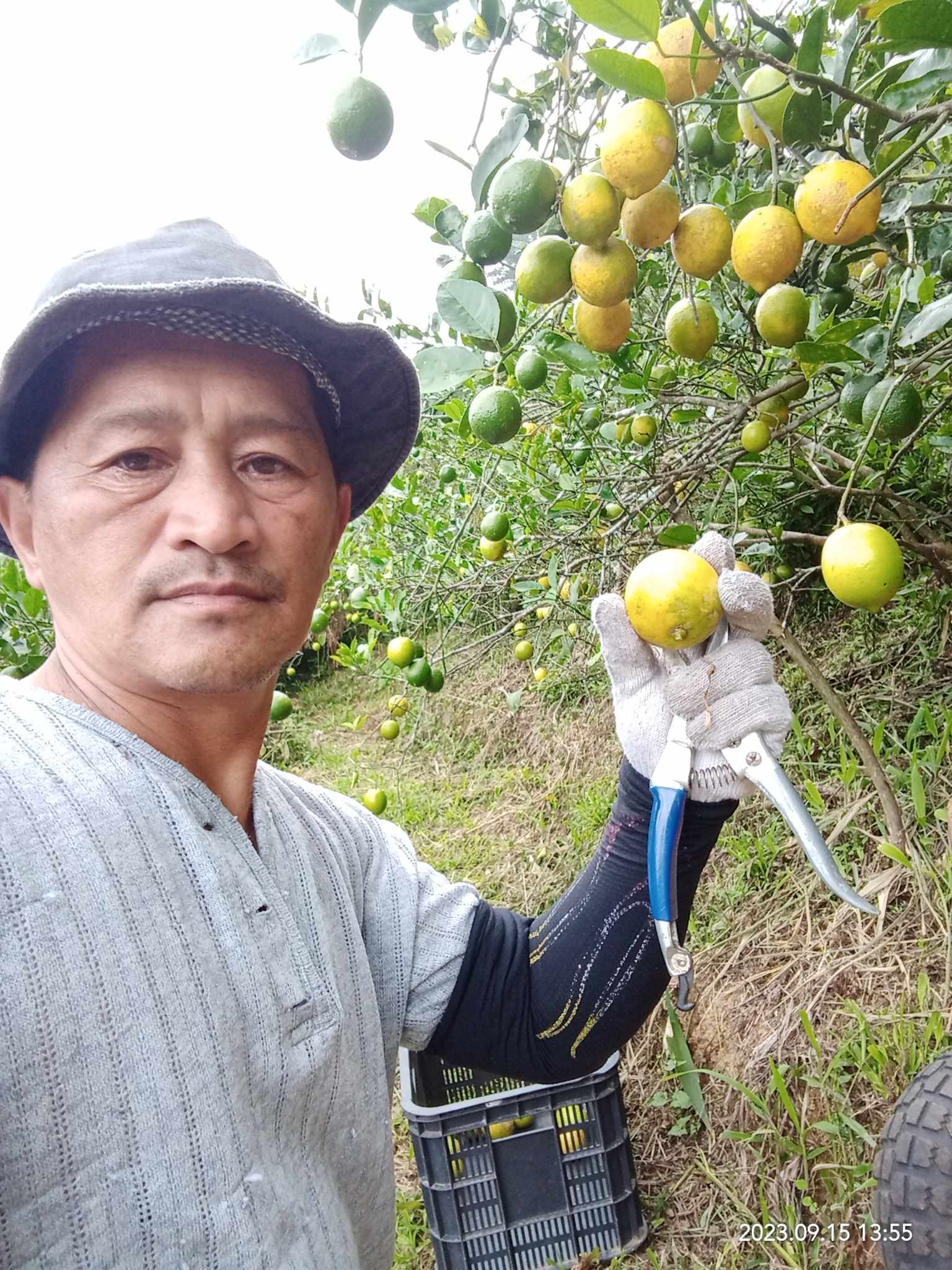
From lemon trees to tourism
As time passed and the lemon trees matured, yielding an abundance of fruit, the farm gained recognition from the Department of Agriculture and the Local Government Unit of Tublay, who actively promoted Rolando's place as an agri-tourism destination.
The farm spans an area of two hectares planted to 3,000 lemon trees. In addition to lemons, there are also a few intercropped plants, such as passion fruit.
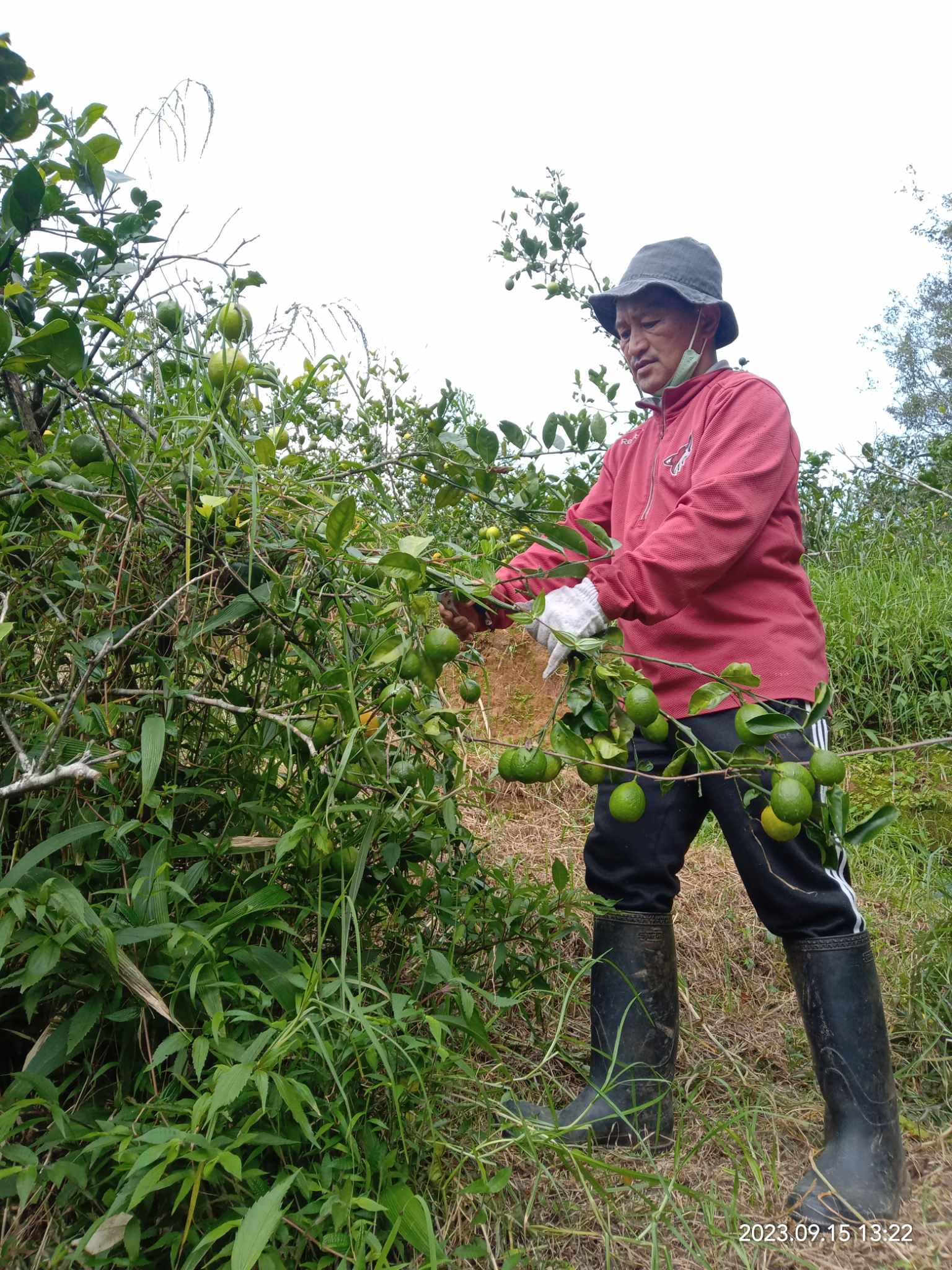
The harvested lemons were typically sold through the local trading post, alongside sales by order. “Since there's an abundance of lemons during peak season with lower prices, we've introduced a profitable lemon-picking activity here on our farm,” Rolando said in Tagalog.
The push to establish the farm as an agricultural tourism hotspot began in the last quarter of 2019, garnering the attention of both local and foreign visitors, who can visit the farm to pick lemons at a rate of 50 pesos per kilo. To access this experience, an entrance fee of 100 pesos is required. While private and group tours are warmly welcomed, the farm management prefers advance scheduling to ensure they they could accommodate visitors efficiently and provide an enjoyable experience. Unfortunately, this momentum was abruptly halted due to the global pandemic.
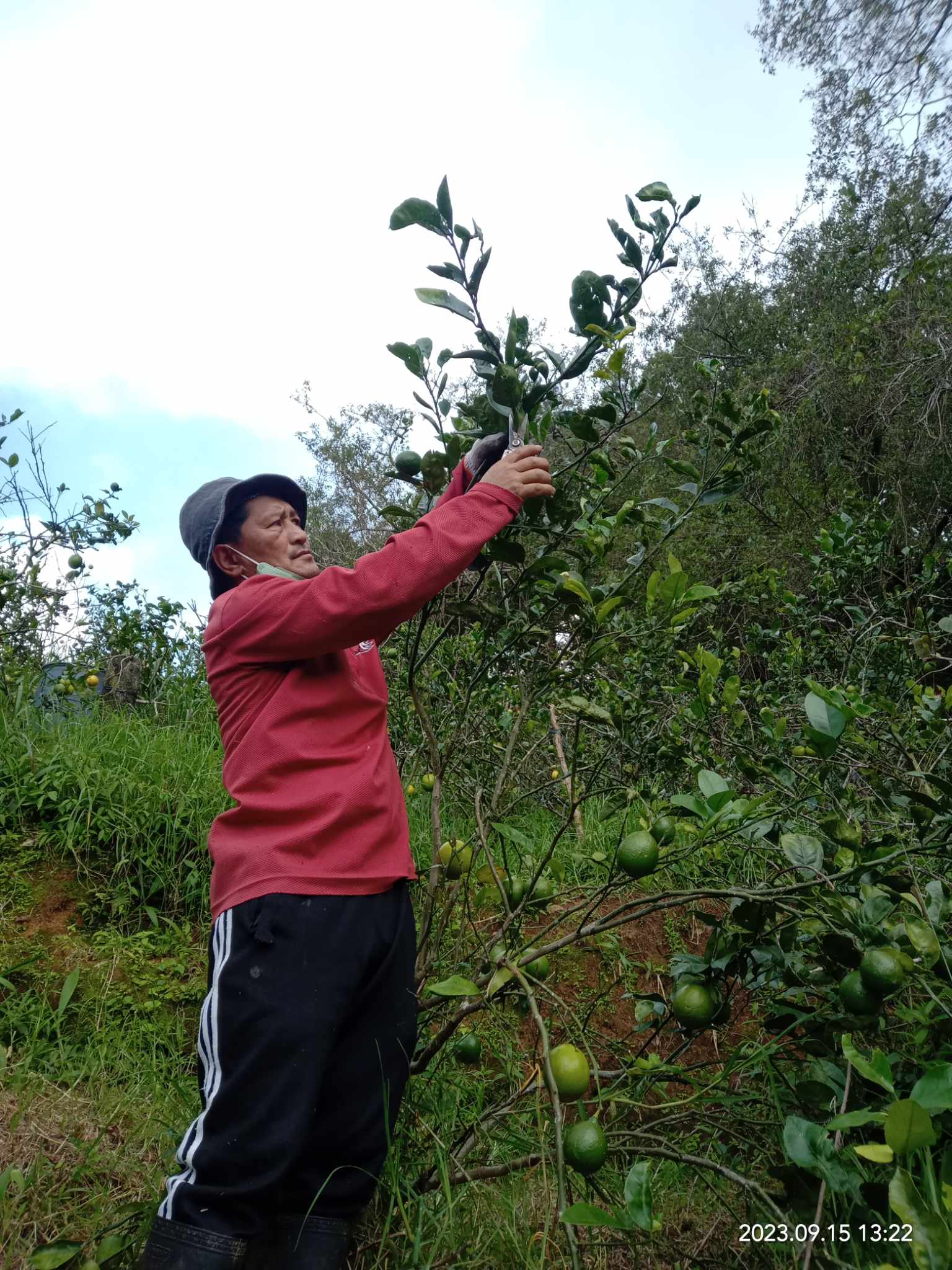
Diversifying income streams
Thanks to the collaborative efforts of the Municipal Agriculture Office and the local government of Tublay, informative seminars were organized to empower Rolando and his family with the knowledge and skills needed to process their lemon harvest. In addition to the primary lemon-picking activity, the farm diversified its offerings to include an array of lemon-derived products, such as candies, jellies, cakes, pies, pickles, and wines.
“The lemon processing has not only generated income for us but also created job opportunities for our families, relatives, and friends,” Rolando said. “This is crucial for us because our lemon production doesn't always find buyers in the market during the peak season, which typically runs from September to February.”
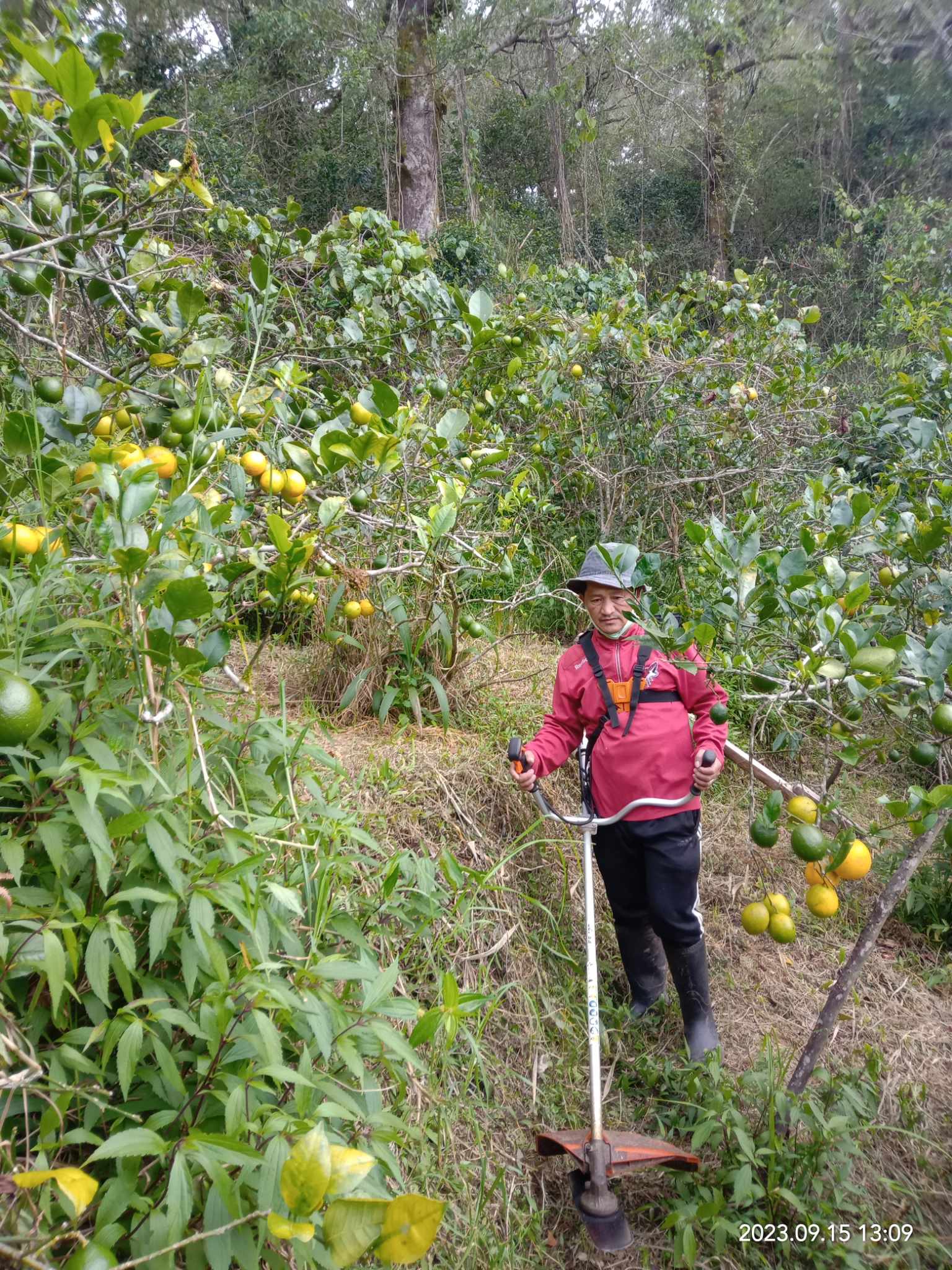
According to Rolando, during the summer season, fruit production declines, and the flowers would often abort due to insufficient water supply. The peak flowering period typically commences in June. Because there was no established irrigation system on the farm, the operation relied heavily on rainfall for irrigation, making the processing of lemons a crucial aspect of sustaining their livelihood.
Nature's challenges
The farm faced several challenges, notably the destructive impact of typhoons that often uproot trees and break branches, particularly during the fruiting season. To mitigate these effects, Rolando employs measures such as securing the trees to support stakes and propping them up to withstand the force of the storms. Additionally, the lemon trees have to endure the adverse effects of frost during periods of exceptionally low temperatures, causing frost damage to the fruits.
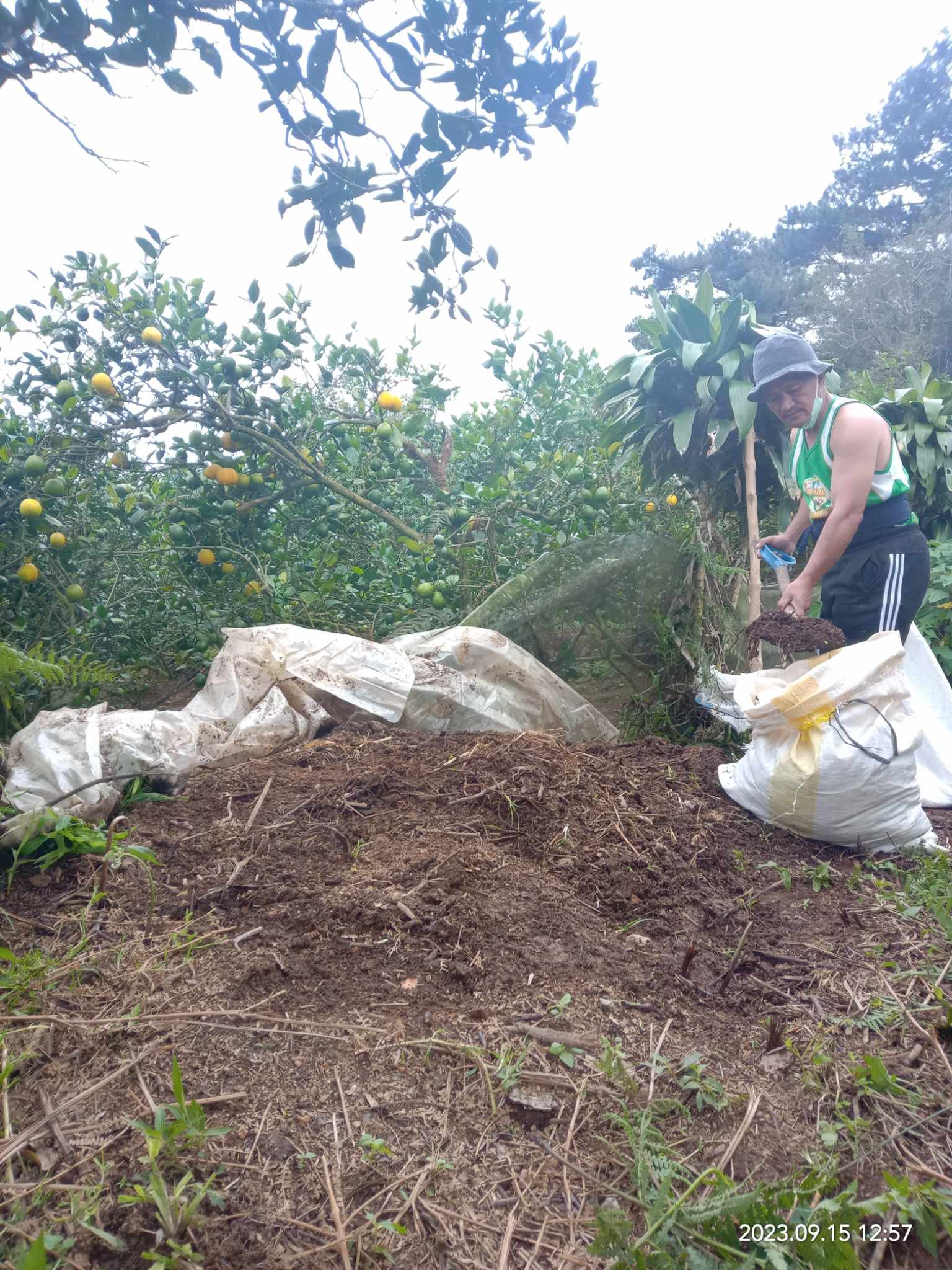
Sustainable farming practices
Rolando’s approach to farming is characterized by several practices aimed at optimizing crop yield and sustainability. These methods include thinning and pruning of the lemon trees to maintain a manageable height. To enhance soil fertility and reduce reliance on commercial fertilizers, leguminous crops are strategically planted to serve as a natural source of nitrogen.
The farm adheres to Good Agricultural Practices (GAP) standards, emphasizing environmentally responsible and sustainable farming techniques. One notable aspect of their commitment to sustainability is the avoidance of pesticides in their cultivation processes. Instead, they prioritize the use of compost to nurture the soil and support healthy plant growth.
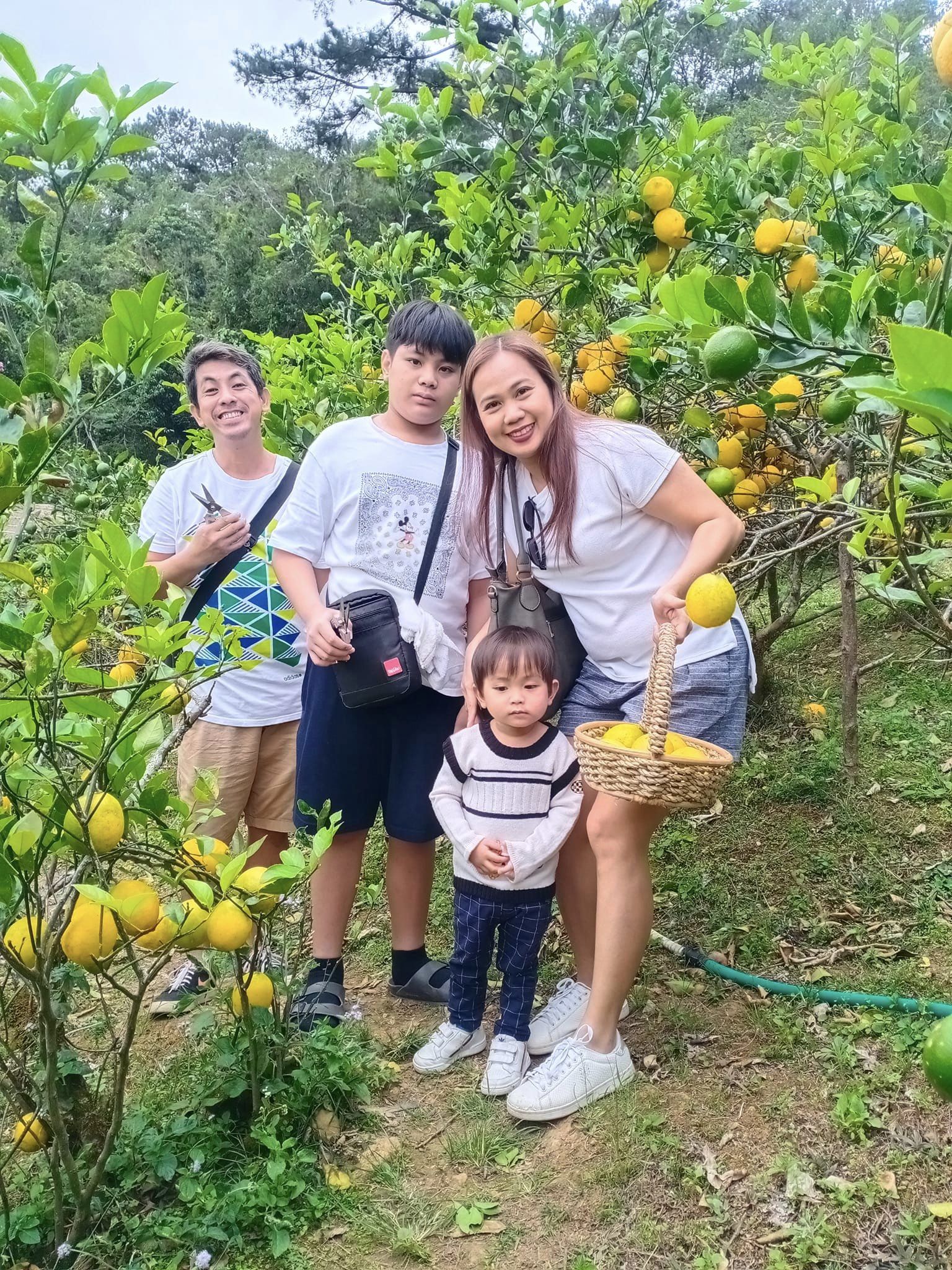
Economic benefits and future plans
The farm serves as the Amando family’s primary source of income, highlighting its significance as a reliable and sustainable livelihood for them and their community. “Lemon farming is not only profitable but also a wise investment, given the consistent demand for lemons,” Rolando said.
The Amando Family has been able to provide jobs to individuals within the community, particularly for tasks like cleaning, pruning, harvesting, and post-harvest activities on their farm.
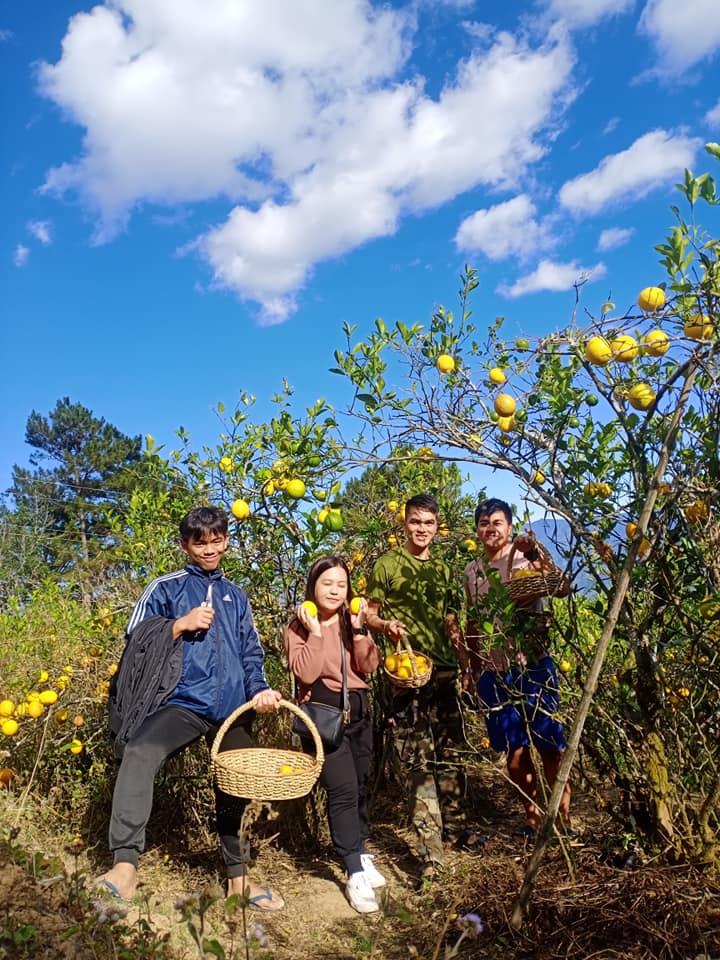
Rolando remains committed to enhancing both their services and products through continuous training and skill development. In addition to their ongoing efforts, they are planning beautification activities to enhance the aesthetics of their farm, creating an even more appealing destination for visitors. Furthermore, they have plans to diversify their crops by introducing strawberries and Spanish tomatoes. Additionally, Rolando aims to provide lemon planting materials to those interested in cultivating lemons.
Advocating for local farmers
Rolando emphasizes the importance of supporting local farmers and reducing the dependence on fruit imports. “Our demand, us farmers, is to restrict the importation of fruits from other countries,” he said. “Often, when there's a surge in foreign product imports, we struggle to compete with their lower prices, and our own products face difficulty in finding buyers. We sincerely hope that the government will give precedence to the well-being of local farmers.”
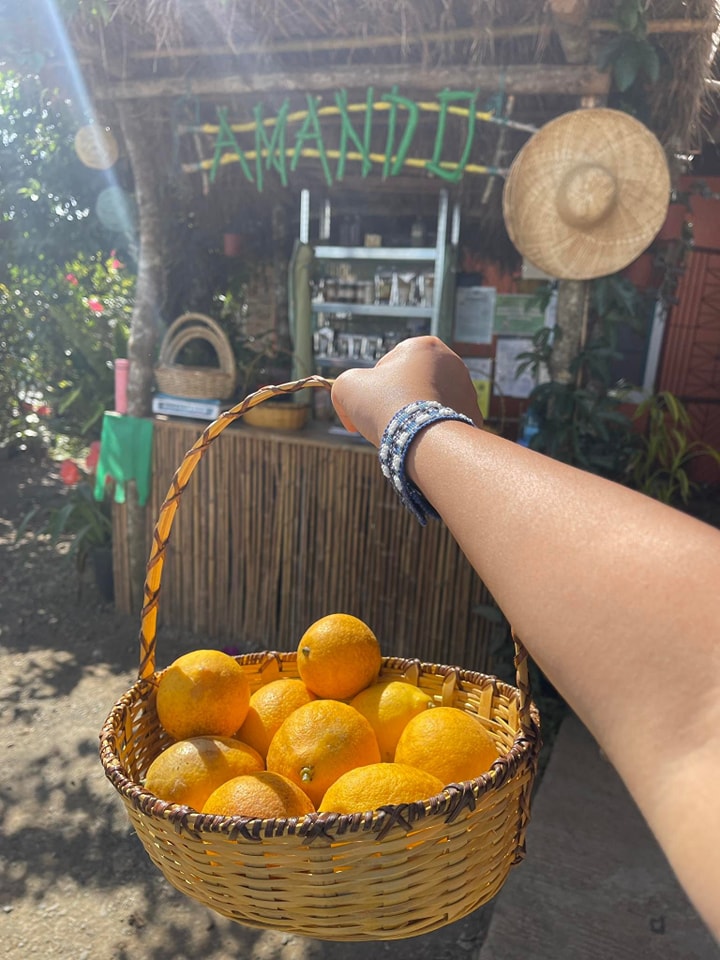
In addition to this plea, Rolando encourages and urges fellow farmers to adopt practices like Good Agricultural Practices (GAP) and organic farming, similar to what is practiced on his own farm. This collective effort among farmers can not only strengthen the local agricultural industry but also contribute to the overall health and well-being of Filipinos by providing them with healthier, locally-grown produce.
Photo courtesy of Amando’s Lemon Picking Farm